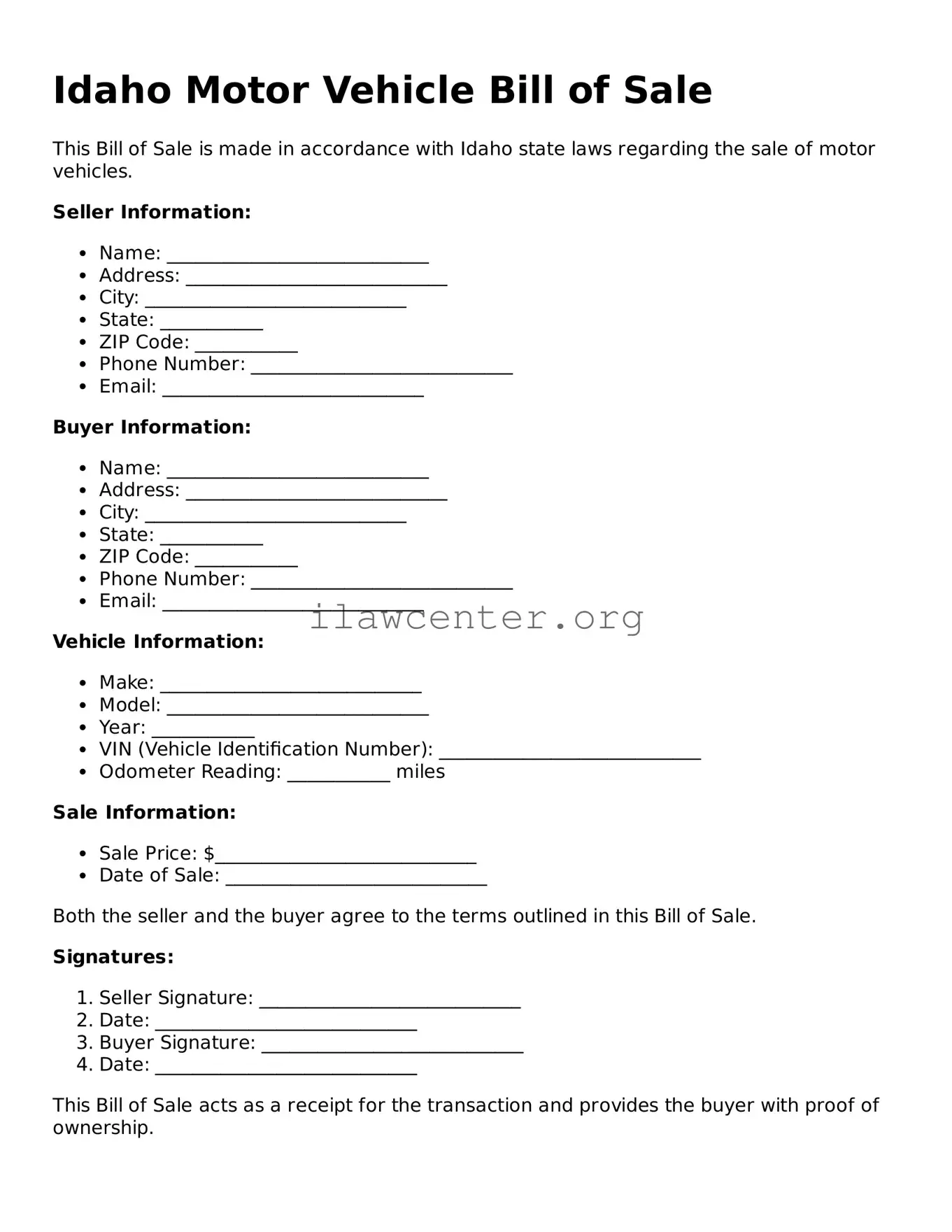What is the Idaho Motor Vehicle Bill of Sale form used for?
The Idaho Motor Vehicle Bill of Sale form is a legal document that records the sale of a vehicle between a buyer and a seller. This form serves as proof of the transaction, providing essential details such as the vehicle's make, model, year, VIN (Vehicle Identification Number), and sale price. Having this document helps protect both parties by documenting the transfer of ownership and can be essential for future vehicle registration or in case of disputes.
Do I need to have the form notarized?
In Idaho, notarization is not a requirement for the Bill of Sale. However, it is a good practice to have the document notarized to add an extra layer of legitimacy and security to the sale. This can help especially if the transaction is questioned later; it provides validation that both parties willingly signed the document, affirming the terms of the sale.
Can I use a Bill of Sale for a vehicle that has a lien?
Yes, you can use a Bill of Sale for a vehicle with a lien. However, it is crucial to disclose this information to the buyer, as it affects the ownership transfer. The lien must be satisfied before the title can be transferred, or the buyer must agree to take on the responsibility of the lien. It is advisable for both parties to understand the implications clearly, including any potential impacts on future ownership rights.
Is there a specific format I need to follow for the Idaho Motor Vehicle Bill of Sale?
While there is no rigid format for the Idaho Motor Vehicle Bill of Sale, it should include key information such as the names and addresses of both the seller and buyer, vehicle details (make, model, year, VIN), sale price, and the date of sale. It is important to capture this information accurately to ensure a smooth transaction. Many people opt to use a standard template for ease and to make sure they include all necessary details.
What should I do with the Bill of Sale once it is completed?
After completing the Bill of Sale, both parties should retain a copy for their records. The seller will want to keep a record of the transaction, while the buyer will need the form to register the vehicle in their name. It is also advisable for the seller to notify their insurance company of the sale and provide them with any necessary documentation. This helps in ensuring that their liability is cleared once the vehicle ownership changes hands.
